Families: Recognizing Substance Use Disorders & Mental Health Concerns
October
What Do We Need To Do?
 “When someone we love is at risk—or already struggling with substance use—we’ll do whatever it takes to help them. But it’s not always easy to know what to say, where to turn, or how to make a difference. That’s where we come in.” The Partnership to End Addiction has launched a Family Resource Center focusing on youth and family issues related to substance use. Explore the many tools in the topics below:
“When someone we love is at risk—or already struggling with substance use—we’ll do whatever it takes to help them. But it’s not always easy to know what to say, where to turn, or how to make a difference. That’s where we come in.” The Partnership to End Addiction has launched a Family Resource Center focusing on youth and family issues related to substance use. Explore the many tools in the topics below:
- Prevention and Early Action;
- Communication Skills;
- Helping Change Behavior;
- Treatment and Recovery;
- Self-Care;
- Tools, Online Courses, and other resources.
August
Day Care and Recovery
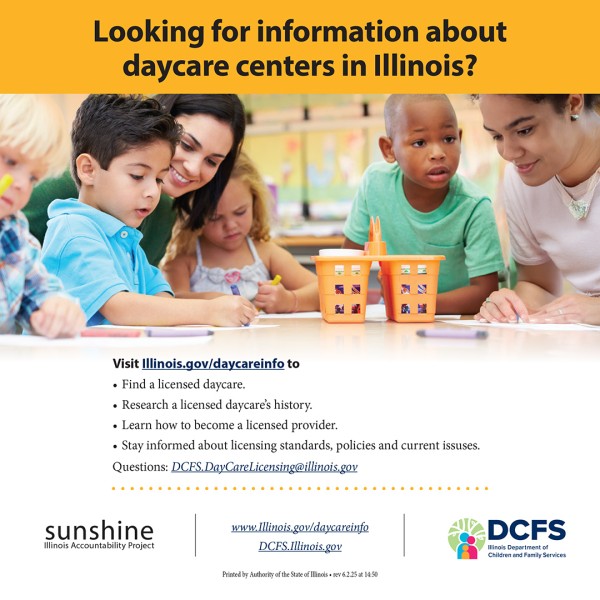 If you are a parent on a recovery journey, it is often difficult to find day care for your child. Parents often struggle with the issue of finding a safe day care and funding for paying the fee. As parents seek the best for their children, check out this resource offered by DCFS. Visit this resource to reduce a common parenting recovery stressor.
If you are a parent on a recovery journey, it is often difficult to find day care for your child. Parents often struggle with the issue of finding a safe day care and funding for paying the fee. As parents seek the best for their children, check out this resource offered by DCFS. Visit this resource to reduce a common parenting recovery stressor.
Mental Health for Children and Families
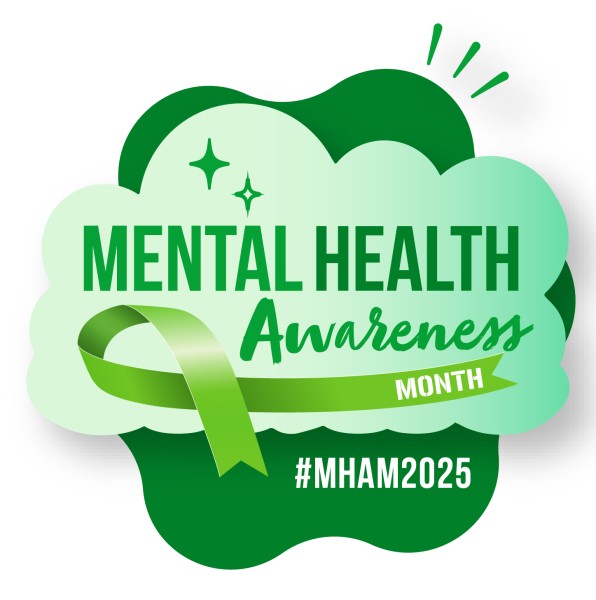 Talking to children about mental health and illness can be an opportunity for parents and caregivers to provide their children with information, support, and guidance. Mental and substance use disorders in families can impact family dynamics. And for children who could benefit from treatment, it can still be hard for parents and caregivers to identify issues or find help and treatment.
Talking to children about mental health and illness can be an opportunity for parents and caregivers to provide their children with information, support, and guidance. Mental and substance use disorders in families can impact family dynamics. And for children who could benefit from treatment, it can still be hard for parents and caregivers to identify issues or find help and treatment.
Check out SAMHSA’’s information at: Mental Health for Children and Families | SAMHSA and Mental Health: Get the Facts | SAMHSA
Help For Families
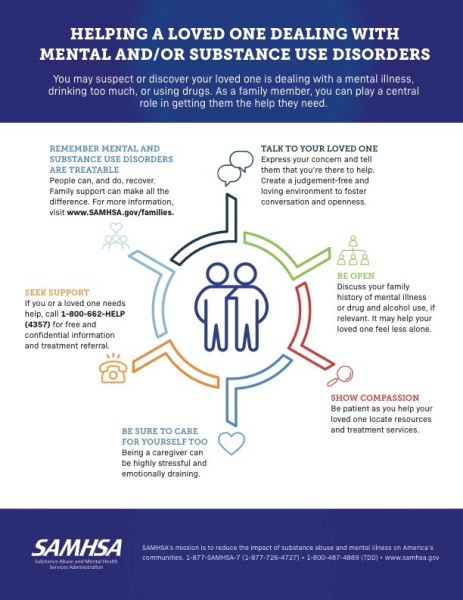 Do you suspect a family member is living with a substance use disorder (SUDs) or co-occurring disorder? When a family member is experiencing SUDs, it can affect more than just the person identified with SUDs and in need of recovery. If you, as family member, notice when your loved one is experiencing changes in their mood or behavior, learn how to be appropriately supportive of treatment and recovery for all. Learn how the family is impacted and how to begin your own recovery journey.
Do you suspect a family member is living with a substance use disorder (SUDs) or co-occurring disorder? When a family member is experiencing SUDs, it can affect more than just the person identified with SUDs and in need of recovery. If you, as family member, notice when your loved one is experiencing changes in their mood or behavior, learn how to be appropriately supportive of treatment and recovery for all. Learn how the family is impacted and how to begin your own recovery journey.
While there is no one-size-fits-all solution for helping a family member who is drinking too much, using drugs, or dealing with a mental illness, research shows that your support can play a major role in helping. It is important to know you can help your loved one connect to treatment, resources, and services to begin and stay on a recovery journey. It is also important to remember that the unique challenges that come from helping a loved one with SUDs, mental health and/or gambling issues, can be demanding, so you should take steps to prioritize your own health as well. The Illinois Family Resource Center (www.illinoisfamilyresources.org) encourages families to be open to the options of support groups or family therapy and counseling. This can improve treatment effectiveness by supporting the whole family. For help with a substance use disorder, check out the Illinois Helpline at: https://helplineil.org/ or the SAMHSA National Helpline at 1-800-662-HELP (4357). Check out the resources SAMHSA offers.
Visit: Families Family Support Guide at https://www.samhsa.gov/families. For more help, visit Resources for Families Coping with Mental and Substance Use Disorders | SAMHSA. Remember – RECOVERY IS POSSIBLE for all.
Talking With Your Child
Partnership to End Addiction offers helpful hints to talk with your child. Their focus is to get on the same page with your spouse/partner. If your child’s other parent or caregiver does not share the same beliefs and values that you do when it comes to substances, you will certainly hear about it from your child. “Getting on the same page” doesn’t necessarily mean agreeing – it means presenting a united front.
Remember: This is a stressful situation for both you and your partner, and you will need one another’s support.
- Remind each other that nobody is to blame.
- Come to an agreement on the position you’ll take.
- Even if you disagree, commit to presenting a united front.
- Pledge not to undermine or talk poorly about each other.
- Remember to come from a place of love when talking to your child.
- Prepare to talk about addiction if it runs in your family. Go to:
What Are the Most Common Relapse Triggers?
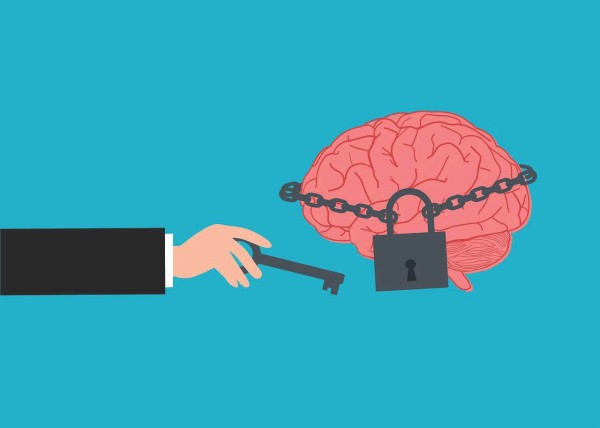 If you are concerned about someone you care about who is on their recovery journey, especially early in the journey, here are some triggers to be aware of from the Midwest Recovery Centers. As part of a support system, take a look at the information offered for these issues. To help: A trigger in the context of substance use and addiction refers to any circumstance or stimulus promoting the use of a substance or cravings for it. Triggers vary a lot between individuals and can be associated with internal and external things.
If you are concerned about someone you care about who is on their recovery journey, especially early in the journey, here are some triggers to be aware of from the Midwest Recovery Centers. As part of a support system, take a look at the information offered for these issues. To help: A trigger in the context of substance use and addiction refers to any circumstance or stimulus promoting the use of a substance or cravings for it. Triggers vary a lot between individuals and can be associated with internal and external things.
Triggers can be categorized as:
- Environmental
- Social
- Emotional
- Cognitive
- Routine
- Physiological
- Media cues
- Celebratory
Check out: Most Common Relapse Triggers and How to Manage Them (midwestrecoverycenters.com)
HRSA Initiative
 Strengthening maternal health is crucial for improving the lives of all mothers and babies. How can you support Black maternal health? Use the HRSA toolkit to raise awareness for Black Maternal Health Week, April 11 – 17, 2024. Provide support by accessing the newest videos and stories that celebrate progress toward strengthening Black maternal health. Also, build your knowledge and support by registering to join the HRSA webinar on April 11 at 2 p.m. ET, "Unlocking the Future of Maternal Health Begins with Research."
Strengthening maternal health is crucial for improving the lives of all mothers and babies. How can you support Black maternal health? Use the HRSA toolkit to raise awareness for Black Maternal Health Week, April 11 – 17, 2024. Provide support by accessing the newest videos and stories that celebrate progress toward strengthening Black maternal health. Also, build your knowledge and support by registering to join the HRSA webinar on April 11 at 2 p.m. ET, "Unlocking the Future of Maternal Health Begins with Research."
Visit: Strengthening Black Maternal Health | MCHB (hrsa.gov)
Partnership to End Addiction
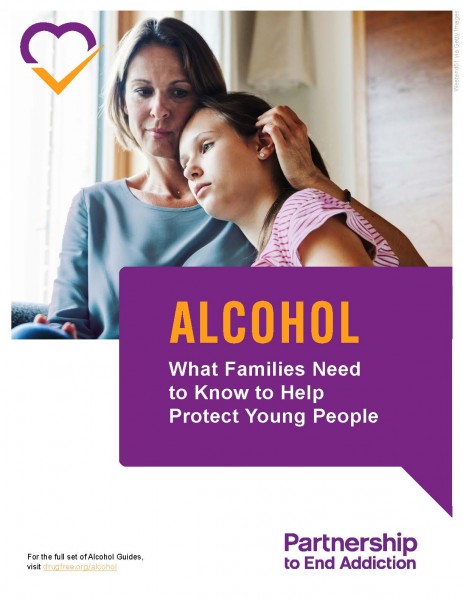 Did you know: 1 in 3 young people aged 12-20 reported drinking alcohol in 2022. 21% Of those youth reporting were aged 12-17. The Partnership to End Addiction shares that as parents and caregivers, we want to do all that we can to protect our children. We worry about what alcohol may do to their health and well-being. They offer a guide to help with addressing this in our busy and somewhat scary world. In this guide, they break down the risks of youth drinking, why it appeals to youth and what you can do to protect your child from its harms.
Did you know: 1 in 3 young people aged 12-20 reported drinking alcohol in 2022. 21% Of those youth reporting were aged 12-17. The Partnership to End Addiction shares that as parents and caregivers, we want to do all that we can to protect our children. We worry about what alcohol may do to their health and well-being. They offer a guide to help with addressing this in our busy and somewhat scary world. In this guide, they break down the risks of youth drinking, why it appeals to youth and what you can do to protect your child from its harms.
Lived Experience
 The Child Welfare Information Gateway shares that to truly transform adoption services, it is essential to do the following:
The Child Welfare Information Gateway shares that to truly transform adoption services, it is essential to do the following:
- Be committed to actively listening to diverse narratives,
- Fostering collaboration with and supporting people with Lived Experience,
- Embedding strategies that prioritize the lessons learned from those experiences.
Lived experience means the representation and understanding of an individual’s human experiences, choices, and options. It shares how those factors influence one’s perception based on one’s own life. Through collective efforts, it becomes possible to create an adoption support system that is not only responsive but also values the strength and resilience inherent in every individual's unique journey.
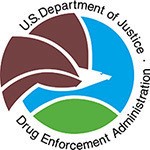 DEA has released the digital copy of an updated Prescription for Disaster: How Teens Misuse Medicine. This publication is designed to be a guide to help the reader understand and identify the current medications that teens are misusing. It is not all-inclusive; not every dosage unit or generic form of the medications can be listed due to space constraints and the frequent introduction of new drugs. The 2023 edition includes new information on fake pills, as well as social media, a major avenue through which teens purchase illicit drugs. Be on the lookout for hard copies of the booklet, as well as a Spanish edition!
DEA has released the digital copy of an updated Prescription for Disaster: How Teens Misuse Medicine. This publication is designed to be a guide to help the reader understand and identify the current medications that teens are misusing. It is not all-inclusive; not every dosage unit or generic form of the medications can be listed due to space constraints and the frequent introduction of new drugs. The 2023 edition includes new information on fake pills, as well as social media, a major avenue through which teens purchase illicit drugs. Be on the lookout for hard copies of the booklet, as well as a Spanish edition! 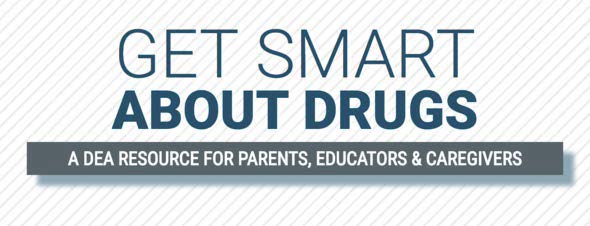
Check out: OUT NOW: 2023 Edition of 'Prescription for Disaster' (govdelivery.com)
COA Awareness Week
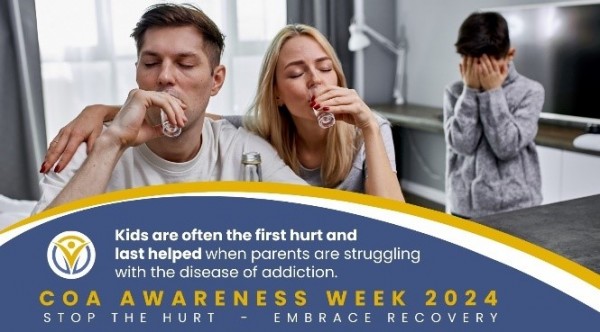 COA Awareness Week honors the struggle of children dealing with the disease of addiction in their families and empowers caring adults who want to help them. Together, we can make a difference to last a lifetime! During COA Awareness Week, you can be a part of NACoA's annual international awareness and advocacy campaign, helping to spread the word that children living in families that struggle with addiction need the support of caring adults. Through awareness activities we can inspire adults to be there for the children who suffer silently, and together we can reach kids and teens with important information. Children living with addiction need to know it's not their fault when a parent struggles with addiction. They also need to understand that these parents have a disease, and learn how to separate the disease of addiction from the parent(s) they love. During COA Awareness Week, do what you can to speak out, reach out, and raise awareness about the silent victims of addiction: the children. These children are often the first hurt and the last helped, but it doesn't have to be that way. You can make a difference with your support and attention during COA Awareness Week. By doing one (or many!) of the suggested COA Awareness Week activities, you can make a difference in the lives of children. And remember: It only takes one caring and supportive adult to take action and empower a child of addiction.
COA Awareness Week honors the struggle of children dealing with the disease of addiction in their families and empowers caring adults who want to help them. Together, we can make a difference to last a lifetime! During COA Awareness Week, you can be a part of NACoA's annual international awareness and advocacy campaign, helping to spread the word that children living in families that struggle with addiction need the support of caring adults. Through awareness activities we can inspire adults to be there for the children who suffer silently, and together we can reach kids and teens with important information. Children living with addiction need to know it's not their fault when a parent struggles with addiction. They also need to understand that these parents have a disease, and learn how to separate the disease of addiction from the parent(s) they love. During COA Awareness Week, do what you can to speak out, reach out, and raise awareness about the silent victims of addiction: the children. These children are often the first hurt and the last helped, but it doesn't have to be that way. You can make a difference with your support and attention during COA Awareness Week. By doing one (or many!) of the suggested COA Awareness Week activities, you can make a difference in the lives of children. And remember: It only takes one caring and supportive adult to take action and empower a child of addiction.
Check out: HOW TO MAKE A DIFFERENCE DURING COA AWARENESS WEEK at 2024-COA-Awareness-Week-Activities.pdf (nacoa.org)
Parenting Dos and Don’ts: ADHD and Discipline
Medically Reviewed by Smitha Bhandari, MD on March 16, 2023
Do: Shift Your Mindset
With ADHD, traditional methods of discipline aren’t always the best fit. Shift your mindset from “I have to discipline my child” and get curious about how to help them improve their skills. Taking an attitude of, “What can I do to help them” instead of “How can I get them to do what I want” is a game-changer.
Do: Ask Yourself This Question
Is your child’s behavior truly naughty? In other words, are they intentionally making a bad choice, or struggling with the impulsivity that often comes with ADHD? Most kids who have ADHD know what they should do but can’t get themselves to do it. If you choose to see it as something they want to do but are having a hard time with, you’re more inclined to guide positively instead of punish.
Don’t: Yell
If your daughter got distracted and didn’t do their homework, take a deep breath. If you yell, it won’t change anything. They’ll shut down and not hear anything you say. Even if it does seem to “work” in the short term, it’s damaging because your child is only motivated by fear. You want your child to trust you. Don’t model what it looks like to lose control.
Do: Be Brief
When you communicate with a child who has ADHD, get their attention first. Then keep it short and simple. If you make a request, make sure they understand it. If it’s a big request -- It’s time to talk about your grades, for instance -- stagger the conversation over a series of days or weeks. This gives them time to process in between.
Don’t: Think Too Far Ahead
Just because your child doesn’t finish cleaning up their messy room today doesn’t mean they’ll never see things through. You don’t have to teach your child to master everything right now. With your support and guidance, they’ll learn each skill when they are ready. Build your way to the future instead of worrying about what it might look like.
Do: Learn and Be Compassionate
You can’t see the inner workings of your child’s brain. All you see is your child’s behavior. That can be frustrating and baffling. Just like in any other trying situation, it helps to be informed and empathetic. Read all you can about ADHD from trusted sources so you understand the condition, and be compassionate with your child and yourself.
Don’t: Ask Too Much of Your Child
Kids with ADHD can’t control themselves as well as other children the same age. They may do something well one day and not do it well the next. It’s too much to ask a child with ADHD to be consistent. You’ll both feel a lot better if you meet your child where they are in any given moment.
Do: Celebrate the Wins
Pay attention to what goes well. Maybe your kid raised their grades, even if they still leave all the lights on in the house. Adjust your perspective so that you notice and celebrate what went well. Reinforce the good instead of only dwelling on what you’d like to be different. When your child does what they know well, highlight the effort and what led to the behavior. For example, “You got your homework done. You must feel so proud of yourself. How did that happen so we can keep this going?”
Don’t: Address Every Little Thing
Kids with ADHD are wrong often. They get redirected all day, every day. If you tackle everything all the time, it’ll wear you both out. Choose one or two behaviors to work on and let the rest go for now. You’ll get to them eventually. This way, your child won’t have that “I can’t do anything right” feeling all the time.
Do: Coach and Collaborate
You wouldn’t expect your child to understand how to play soccer without a coach. You also can’t expect them to control themselves when their brains aren’t wired to tell them how. Coach and collaborate with your child so they can practice skills and decision-making in a safe environment. Practice with phrases like, “How do you think we should handle this situation?” Listen and then decide what’s best.
Do: Look for the Opportunities
Your daughter can’t sit still at dinner. They keep popping up and running around. Then again, they have been managing their behavior at school all day and is tired. Shift your expectations so they don’t feel shame for making mistakes. For instance, set a goal for them to settle down for just 2 minutes. Or go with it and let them be the person who gets the extra ketchup and removes plates as each person finishes.
Do: Discipline Every Child Fairly
If you have more than one child and they don’t all have ADHD, their consequences may need to be different. That can be tricky territory for a parent. Tell all your children that you’re a team and consequences will be fair but not always the same. Show compassion when any of your kids feels angry. Say, “I understand this may be hard for you to accept.”
Do: Take Care of Yourself
ADHD behaviors can be tough to deal with. When you’re calm and rested, you can handle more and handle it better. This may mean you cut back on commitments and adjust your schedule and standards. Self-care -- like exercise, sleep, and a good diet -- is also important. That way, you’re better prepared to help your family -- and yourself -- thrive.
Teens and Alcohol
 Alcohol is a very powerful, addictive drug that is damaging or even lethal in high doses. Many adults drink moderately and safely. Yet other people drink too much which results in potentially dangerous consequences. For teens, alcohol can be very harmful -- and it's illegal. Webmd invites you to check out the following Q&A to update your knowledge of alcohol and teen drinking. Share this information with a friend, especially if you know someone who has an underage drinker.
Alcohol is a very powerful, addictive drug that is damaging or even lethal in high doses. Many adults drink moderately and safely. Yet other people drink too much which results in potentially dangerous consequences. For teens, alcohol can be very harmful -- and it's illegal. Webmd invites you to check out the following Q&A to update your knowledge of alcohol and teen drinking. Share this information with a friend, especially if you know someone who has an underage drinker.
Visit: Teens, Alcohol, and Abuse (webmd.com)
Adult Children of Alcoholics and NACoA share: “It’s Never Too Late to Heal From Addiction in the Home”
 It is important to know that being an adult child of a family member experiencing substance use disorder does not automatically classify you as struggling with issues of mental health. However, it does make the potential more likely. Stuffed emotions may erupt or remain stuffed, slowly eating away at an adult child’s psychological health. Adult children of substance use are significantly more likely to struggle with alcohol misuse, abuse, and substance misuse themselves.
It is important to know that being an adult child of a family member experiencing substance use disorder does not automatically classify you as struggling with issues of mental health. However, it does make the potential more likely. Stuffed emotions may erupt or remain stuffed, slowly eating away at an adult child’s psychological health. Adult children of substance use are significantly more likely to struggle with alcohol misuse, abuse, and substance misuse themselves.
To learn more, visit: What Are the Psychological Affects of the Past on Adult Children of Alcoholics? (nacoa.org)
Mark Your Calendars: Take Back Day Is October 28!
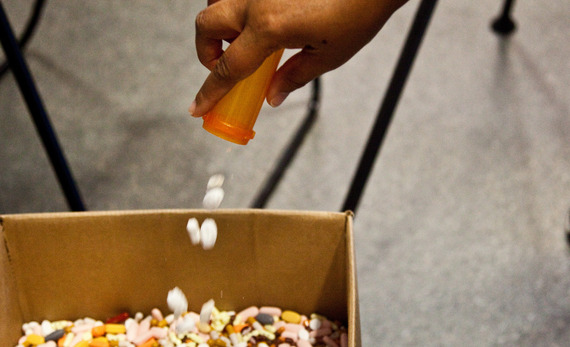 The next National Prescription Drug Take Back Day is October 28, 2023, from 10am-2pm at locations nationwide. This event, which happens twice a year, is a safe, convenient, and responsible way to dispose of unused or expired prescription drugs at locations in communities throughout the country. The April 2023 Take Back Day brought in 663,725 lbs. (332 Tons) of medication.
The next National Prescription Drug Take Back Day is October 28, 2023, from 10am-2pm at locations nationwide. This event, which happens twice a year, is a safe, convenient, and responsible way to dispose of unused or expired prescription drugs at locations in communities throughout the country. The April 2023 Take Back Day brought in 663,725 lbs. (332 Tons) of medication.
For more information check out: National Prescription Drug Take Back Day | Get Smart About Drugs
September 2023
FASD
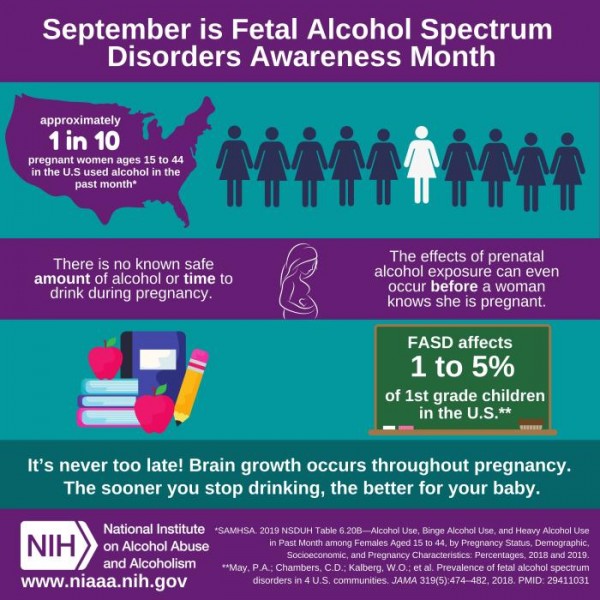 September is FASD Awareness Month FASD Awareness Month. This is an expansion of FASD Awareness Day that has been held each year on September 9th since 1999. People all around the world gather for events to raise awareness about the dangers of alcohol use during pregnancy and the challenges individuals and families can face who are living with FASDs. FASD is 100% preventable.
September is FASD Awareness Month FASD Awareness Month. This is an expansion of FASD Awareness Day that has been held each year on September 9th since 1999. People all around the world gather for events to raise awareness about the dangers of alcohol use during pregnancy and the challenges individuals and families can face who are living with FASDs. FASD is 100% preventable.
Helping Your Student Navigate Friendships
 Students' friendships can be protective or increase risk. If students can surround themselves with positive, supportive, academically engaged, and goal-driven friends, they are more likely to flourish. A study on peer influence showed that students with close personal friends were less likely to experience mental health symptoms. However, those students who reported having close friends who drink alcohol and/or use other substances increased their risk for hazardous drinking tenfold and were six times more likely to use cannabis. College Parents Matter newsletter offers some tools for parents to consider. Parents/caregivers can act as a coach and sounding board on a variety of topics:
Students' friendships can be protective or increase risk. If students can surround themselves with positive, supportive, academically engaged, and goal-driven friends, they are more likely to flourish. A study on peer influence showed that students with close personal friends were less likely to experience mental health symptoms. However, those students who reported having close friends who drink alcohol and/or use other substances increased their risk for hazardous drinking tenfold and were six times more likely to use cannabis. College Parents Matter newsletter offers some tools for parents to consider. Parents/caregivers can act as a coach and sounding board on a variety of topics:
- Brainstorming where and how they can meet new friends without partying
- Setting boundaries around substance use with friends or roommates
- How to handle conflicts productively, and knowing when to seek help
- Taking care of themselves when a relationship ends
Watch for red flags that could signal the student is in distress or if substance use (their own or someone else's) is impacting them:
- They are tired all the time. It could be a disruptive roommate, spending nights out, or they could be experiencing mental health distress.
- They are frequently in conflict with roommates or housemates.
- They are disengaged academically. They seem less interested or passionate about their area of study and/or might be skipping class.
- They often ask for more money, but it isn't clear what it is being used for.
- They consistently want to come home on weekends.
College Parents Matter: Fall Quarterly Newsletter (mailchi.mp)
Reasons to Connect with the 988 Lifeline
 We continue to see a need to let people know that the 988 Lifeline is available for people to connect around many emotional struggles, including:
We continue to see a need to let people know that the 988 Lifeline is available for people to connect around many emotional struggles, including:
- Thoughts of suicide
- Drinking too much
- Anxiety
- Sexual orientation
- Drug use
- Feeling depressed
- Mental and physical illness
- Loneliness
- Trauma
- Relationships
- Economic worries, and more
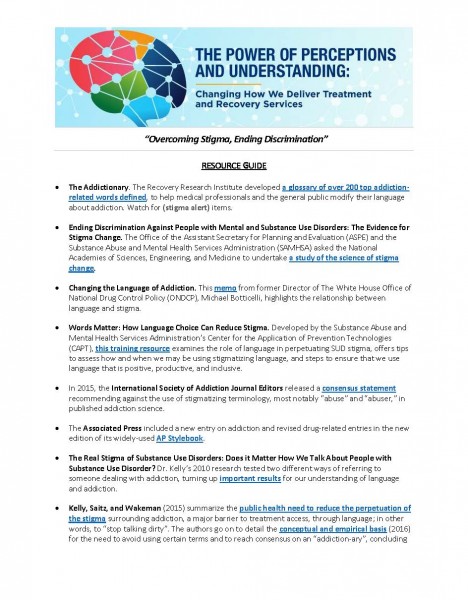
Support a Loved One
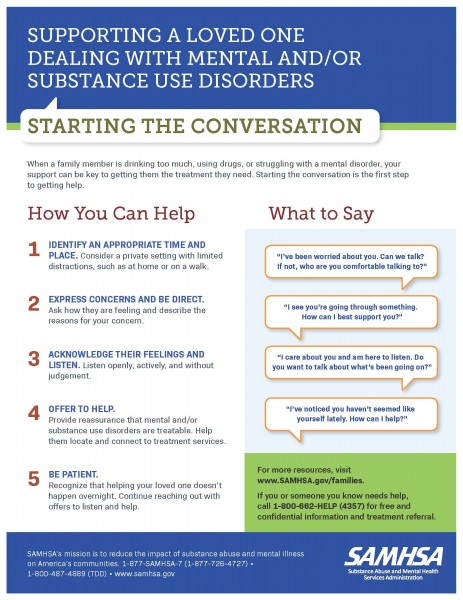 When living in the chaos of substance misuse in the family, take a minute and learn how to start the conservation toward help and recovery. One of the most difficult things is to know what to say to a loved one when you are concerned about the behaviors you are observing.
When living in the chaos of substance misuse in the family, take a minute and learn how to start the conservation toward help and recovery. One of the most difficult things is to know what to say to a loved one when you are concerned about the behaviors you are observing.
Check out: www.SAMHSA.gov/families.
If you or someone you know needs help, Call 1-800-662-HELP (4357) for free and
confidential information and treatment referral.
Take the Test
 Mental health conditions, such as depression or anxiety, are real, common and treatable. And recovery is possible. Online screening is one of the quickest and easiest ways to determine whether you are experiencing symptoms of a mental health condition. After your mental health test, you will see information, resources, and tools to help you understand and improve your mental health.
Mental health conditions, such as depression or anxiety, are real, common and treatable. And recovery is possible. Online screening is one of the quickest and easiest ways to determine whether you are experiencing symptoms of a mental health condition. After your mental health test, you will see information, resources, and tools to help you understand and improve your mental health.
Mental Health America Inc. states: “Please note: Online screening tools are meant to be a quick snapshot of your mental health. If your results indicate you may be experiencing symptoms of a mental illness, consider sharing with a mental health provider (such as a doctor or a therapist) who can give you a full assessment and talk to you about options for how to feel better.”
WARNING: BEWARE
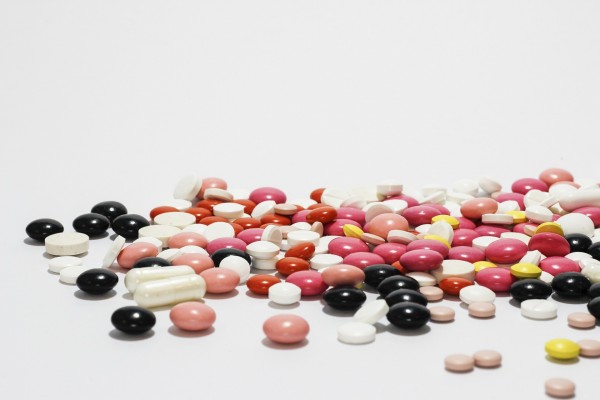 The Drug Enforcement Administration has issued the attached Public Safety Alert regarding xylazine. In the words of DEA Administrator Anne Milgram:
The Drug Enforcement Administration has issued the attached Public Safety Alert regarding xylazine. In the words of DEA Administrator Anne Milgram:
“Xylazine is making the deadliest drug threat our country has ever faced, fentanyl, even deadlier,” said Administrator Milgram. “DEA has seized xylazine and fentanyl mixtures in 48 of 50 States. The DEA Laboratory System is reporting that in 2022 approximately 23% of fentanyl powder and 7% of fentanyl pills seized by the DEA contained xylazine.”
This alert has been posted on www.dea.gov. A publication from the DEA Intelligence Division regarding Xylazine that can be shared is available here: The Growing Threat of Xylazine and its Mixture with Illicit Drugs (dea.gov).
Teen Talk
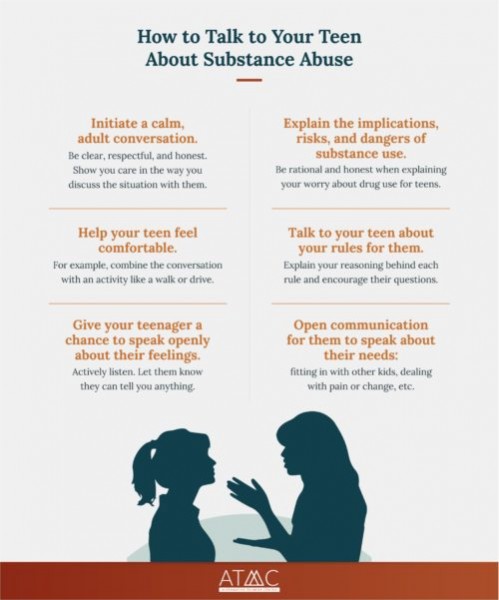 As you start spring, take a minute to spend time with your busy teen and share a conservation about substance use. It is easy to get distracted and not take the time that is so vital to a healthy family and community. With spring comes teen plans for summer fun. Protect your teen by talking, not just chatting but meaningful talk. Show respect as a person who makes choices and can show responsible decisions. One of the most important skills in "teen talk" is listening. Listening with your ears and your heart.
As you start spring, take a minute to spend time with your busy teen and share a conservation about substance use. It is easy to get distracted and not take the time that is so vital to a healthy family and community. With spring comes teen plans for summer fun. Protect your teen by talking, not just chatting but meaningful talk. Show respect as a person who makes choices and can show responsible decisions. One of the most important skills in "teen talk" is listening. Listening with your ears and your heart.
Help from Sesame Street
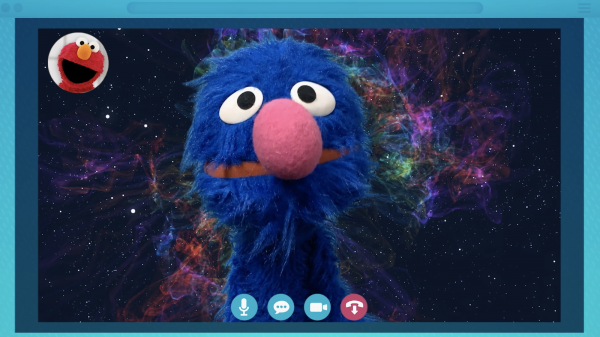 “When a family member struggles with addiction, the whole family struggles. Children often think it’s their fault; they feel shame, embarrassment, guilt, and loneliness; they may feel invisible. It takes special effort to start important conversations and answer children’s questions.” With love and support, the family can cope with the challenges of addiction together. Sesame Street in Communities has resources to assist both families and professionals in working with children experiencing the chaos of substance misuse. Build a strong support as you visit the website.
“When a family member struggles with addiction, the whole family struggles. Children often think it’s their fault; they feel shame, embarrassment, guilt, and loneliness; they may feel invisible. It takes special effort to start important conversations and answer children’s questions.” With love and support, the family can cope with the challenges of addiction together. Sesame Street in Communities has resources to assist both families and professionals in working with children experiencing the chaos of substance misuse. Build a strong support as you visit the website.
Check out: Home - Sesame Street in Communities - Sesame Street in Communities
Know the Facts as You Plan
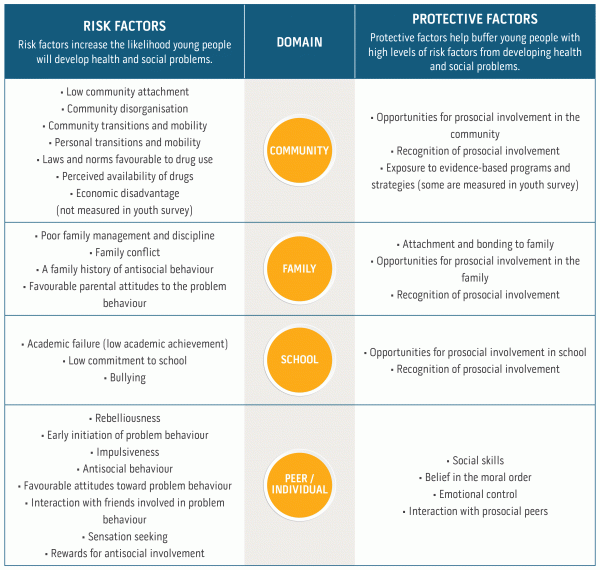 If you or a group you are working with are planning on building preventive programming for families and communities, take some time and learn about the research of risk & protective factors to be addressed. Learning about the issues to address as you plan and develop projects will help build a stronger effort and help with healthy outcomes. Take a look at the overview posted. For more information contact the Illinois Family Resource Center office.
If you or a group you are working with are planning on building preventive programming for families and communities, take some time and learn about the research of risk & protective factors to be addressed. Learning about the issues to address as you plan and develop projects will help build a stronger effort and help with healthy outcomes. Take a look at the overview posted. For more information contact the Illinois Family Resource Center office.
Sober Driving
 During the holiday season, many of us look forward to get-togethers with friends and family. Unfortunately, holidays can also be a dangerous time for alcohol- and drug-related traffic incidents. SAMHSA is observing National Impaired Driving Prevention Month in December to raise awareness of this deadly yet preventable problem. Did You Know?
During the holiday season, many of us look forward to get-togethers with friends and family. Unfortunately, holidays can also be a dangerous time for alcohol- and drug-related traffic incidents. SAMHSA is observing National Impaired Driving Prevention Month in December to raise awareness of this deadly yet preventable problem. Did You Know?
- Since the early 1980s, public policy changes, school and community interventions, and grassroots advocacy have significantly decreased alcohol-related driving fatalities. Yet, driving impaired (by alcohol or other drugs) continues to take lives.
- About 30 percent of all traffic fatalities involve a driver who is alcohol impaired. Each day, about 32 people die in a crash in which at least one driver is alcohol impaired. That’s one person every 45 minutes.
- 56 percent of drivers who are seriously injured or killed in a crash tested positive for at least one drug, according to preliminary data from an ongoing study.
- It’s illegal everywhere in the United States to drive under the influence of alcohol, marijuana, opioids, methamphetamines, or any potentially impairing drug.
- Even in states where marijuana laws have changed, it’s still illegal to drive under the influence of that drug.
- Alcohol impairs the ability to drive — affecting our vision, reaction times, judgement, and ability to multi-task. Driving under the influence of other drugs can have equally deadly consequences. Visit: The Gift of Sober Driving | SAMHSA
